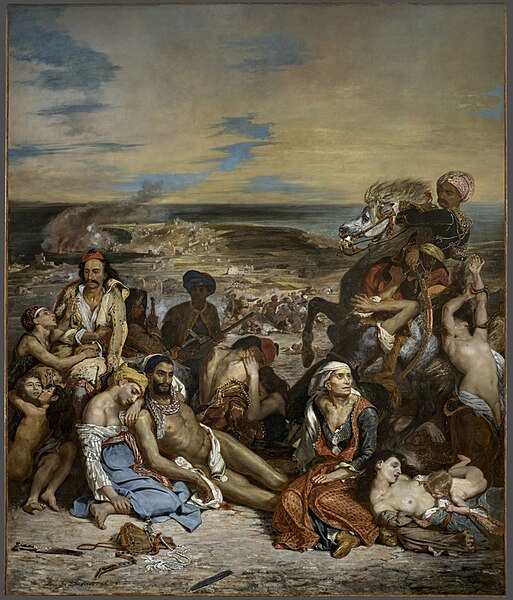The article chronicles a fascinating journey through time, exploring twenty pivotal events that occurred on March 31st across various centuries.
From the strategic marriage of Constantine the Great in 307, through the establishment of the World Trade Organization in 1995, to the harrowing incident in Fallujah in 2004, the article offers a comprehensive look at how a single day can encapsulate events of monumental importance.
Through this exploration, readers will gain insights into the complex tapestry of human history, marked by moments of triumph, tragedy, innovation, and transformation.
March 31th Events in History
307 – After divorcing his wife Minervina, Constantine marries Fausta, the daughter of the retired Roman Emperor Maximian
After divorcing his first wife Minervina, Constantine the Great married Fausta, the daughter of the retired Roman Emperor Maximian, in a political alliance that strengthened his position within the Tetrarchy.
Also Read: March 30 – On this Day in History
Fausta was an important figure in her own right, and this marriage solidified Constantine’s alliances with the other ruling families of the Roman Empire.
It played a crucial role in the events leading up to Constantine becoming the sole ruler of the Roman Empire and his eventual support for Christianity.
1146 – Bernard of Clairvaux preaches his famous sermon in a field at Vézelay, urging the necessity of a Second Crusade. Louis VII is present, and joins the Crusade
Bernard of Clairvaux, a prominent French abbot and a key figure in the Cistercian monastic movement, preached an influential sermon at Vézelay, urging the necessity of a Second Crusade.
In attendance was King Louis VII of France, who was moved by Bernard’s words and declared his support for the Crusade. This event was pivotal in mobilizing European support for the Crusade, which was intended to recapture Christian territories in the Near East that had been lost to Muslim forces.

1492 – Queen Isabella of Castile issues the Alhambra Decree, ordering her 150,000 Jewish and Muslim subjects to convert to Christianity or face expulsion
Issued by Queen Isabella of Castile and King Ferdinand of Aragon, the Alhambra Decree ordered the expulsion of practicing Jews from the kingdoms of Castile and Aragon.
Also Read: April 1st Events in History
This decree forced thousands of Jews to convert to Christianity or face expulsion, with many fleeing to North Africa, the Ottoman Empire, and other parts of Europe.
The Alhambra Decree was a significant event in the history of religious tolerance and intolerance, with long-lasting impacts on the Jewish diaspora.
1774 – The British Parliament passes the Boston Port Act, closing the port of Boston and demanding the city’s residents pay for the tea dumped into Boston Harbor during the Boston Tea Party
In response to the Boston Tea Party, where American colonists threw a shipment of tea into Boston Harbor as a protest against British taxation without representation, the British Parliament passed the Boston Port Act.
This act closed the port of Boston until the East India Company had been compensated for the lost tea and order had been restored in the colonies. The Boston Port Act was one of the “Intolerable Acts” that fueled tensions between Britain and the American colonies, eventually leading to the American Revolution.
1822 – The massacre of the population of the Greek island of Chios by soldiers of the Ottoman Empire following an attempted rebellion, depicted by Delacroix
Following a Greek attempt at rebellion against Ottoman rule, Ottoman forces landed on the island of Chios and killed thousands of civilians, enslaving many more. The event shocked the conscience of Europe and significantly increased public support for the Greek War of Independence.
The French Romantic painter Eugène Delacroix immortalized the massacre in his painting “Massacre at Chios,” which became a symbol of the Greek struggle for independence and highlighted the atrocities committed during the conflict.

1854 – Commodore Matthew Perry signs the Convention of Kanagawa with the Tokugawa Shogunate, effectively opening the ports of Shimoda and Hakodate to American trade
This event marked the end of Japan’s 220-year-old policy of national seclusion (Sakoku) by opening the ports of Shimoda and Hakodate to American trade. Commodore Matthew Perry of the United States Navy played a pivotal role by arriving in Japan with a fleet of ships and demanding that Japan open its ports to international trade.
The Convention of Kanagawa was signed under pressure but is credited with ending Japan’s isolation and initiating a period of rapid modernization and industrialization known as the Meiji Restoration.
1889 – The Eiffel Tower is officially opened to the public at the Universal Exposition in Paris
: Designed by Gustave Eiffel and his engineers for the 1889 Exposition Universelle (World’s Fair) held to celebrate the 100th anniversary of the French Revolution, the Eiffel Tower was initially criticized by some of France’s leading artists and intellectuals but has since become a global icon of France and one of the most recognizable structures in the world.
At the time of its completion, it was the world’s tallest man-made structure, a title it held for 41 years until the completion of the Chrysler Building in New York City in 1930.
1909 – Serbia accepts Austrian control over Bosnia-Herzegovina
This event is part of the lead-up to World War I. In 1908, Austria-Hungary annexed Bosnia-Herzegovina, a move that angered Serbian nationalists who had hoped to expand into the area. Serbia was forced to accept Austrian control over Bosnia-Herzegovina in 1909, increasing tensions in the region.
This resentment played a significant role in the events that unfolded leading to the outbreak of World War I, particularly the assassination of Archduke Franz Ferdinand of Austria by a Bosnian Serb nationalist in 1914.
1917 – The United States takes possession of the Danish West Indies after paying $25 million to Denmark, and renames the territory the United States Virgin Islands
The United States purchased the Danish West Indies from Denmark for $25 million and renamed them the United States Virgin Islands. This acquisition was part of a strategic move to secure the Caribbean region during World War I and to protect the Panama Canal’s approaches, which had opened just a few years earlier in 1914. The deal was also motivated by fears that Germany might seize the islands in wartime and use them as submarine bases.
1918 – Daylight saving time goes into effect in the United States for the first time
The United States first implemented Daylight Saving Time (DST) in 1918 as a measure to conserve coal during World War I. The idea was to make better use of daylight during the evenings, thereby reducing the need for artificial lighting and saving fuel for the war effort.
Although DST was repealed shortly after the war, it was re-implemented during World War II and has been used in various forms since then. The practice has been both praised for its energy-saving potential and criticized for its health impacts and the inconvenience of adjusting clocks.
1931 – An earthquake destroys Managua, Nicaragua, killing 2,000
A devastating earthquake struck the city of Managua, the capital of Nicaragua, on March 31, 1931. This natural disaster resulted in the deaths of approximately 2,000 people and left many more injured or homeless, causing significant damage to the city’s infrastructure.
The earthquake had a profound impact on Nicaragua, leading to political turmoil and contributing to the conditions that eventually led to the rise of the Somoza family’s dictatorship, which would rule the country for decades.
1945 – World War II: A defecting German pilot delivers a Messerschmitt Me 262A-1, the world’s first operational jet-powered fighter aircraft, to the Americans
In the closing months of World War II, a German pilot defected to the Allies, bringing with him a Messerschmitt Me 262A-1, the world’s first operational jet-powered fighter aircraft. This event provided the Allies with valuable insights into advanced German aviation technology.
The Me 262 was significantly faster than any Allied aircraft, and its examination helped to accelerate jet aircraft development in the post-war era, influencing the design and performance of future military and civilian aircraft around the world.
1959 – The Dalai Lama, fleeing the Chinese suppression of a national uprising in Tibet, crosses the border into India, where he is granted political asylum
Following the Chinese suppression of the Tibetan national uprising in Lhasa, the Dalai Lama fled Tibet to seek refuge in India. Crossing the Himalayas in disguise, he eventually reached India, where he was granted political asylum.
This marked the beginning of a long period of exile for the Dalai Lama and thousands of Tibetan refugees who followed him. The event drew international attention to the situation in Tibet, leading to widespread support for the Tibetan cause and continued debate over Tibet’s status and rights.
1964 – A coup d’état in Brazil establishes a military government, under the aegis of General Castelo Branco
On March 31, 1964, Brazil experienced a military coup that led to the establishment of a military government under General Castelo Branco. The coup was a response to growing unrest and fear of communist influence under the presidency of João Goulart.
The military dictatorship that followed lasted until 1985, during which time it was marked by widespread human rights abuses, censorship, and suppression of political opposition. The period also saw significant economic modernization and growth, albeit with considerable social inequality.
1970 – Explorer 1 re-enters the Earth’s atmosphere after 12 years in orbit
Explorer 1, the first American satellite and the first satellite to carry a scientific experiment, re-entered the Earth’s atmosphere and burned up after 12 years in orbit.
Launched on January 31, 1958, Explorer 1 made significant contributions to space science, most notably the discovery of the Van Allen radiation belts, zones of charged particles trapped by the Earth’s magnetic field. This discovery was crucial in understanding the space environment and designing safer spacecraft for future missions.
1980 – The Chicago, Rock Island and Pacific railroad operates its final train after being ordered to liquidate its assets because of bankruptcy and debts owed to creditors
The Chicago, Rock Island and Pacific Railroad, also known as the Rock Island Railroad, operated its final train on March 31, 1980, before being ordered to liquidate its assets due to bankruptcy. This marked the end of a railroad that had been an important part of America’s transportation infrastructure since the 1850s.
The Rock Island Railroad’s financial troubles and eventual liquidation were symptomatic of broader challenges facing the U.S. railroad industry at the time, including competition from trucking, regulatory constraints, and the high costs of maintaining infrastructure. The dissolution of this historic railroad led to the reorganization of the American railway system and influenced subsequent transportation policy and regulation.
1990 – Approximately 200,000 protestors take to the streets of London to protest against the newly introduced Community Charge (poll tax)
Approximately 200,000 people took to the streets of London to protest against the Community Charge, commonly known as the “poll tax,” introduced by the government led by Prime Minister Margaret Thatcher.
The tax was a flat-rate charge on every adult, regardless of income or resources, and was seen as unfair by many. The massive protest turned into one of the most significant riots in London’s history, leading to clashes with the police, injuries, and arrests.
The widespread opposition and civil unrest contributed to the eventual downfall of Thatcher later that year and the repeal of the tax, which was replaced by the Council Tax system that included provisions based on property values and individual circumstances.
1992 – The USS Missouri, the last battleship commissioned by the United States, is decommissioned in Long Beach, California
The USS Missouri, the last battleship commissioned by the United States, was decommissioned on March 31, 1992, in a ceremony at Long Beach, California.
Having served in World War II, the Korean War, and, after reactivation, in the Persian Gulf War, the USS Missouri was one of the most storied battleships in U.S. naval history.
It was the site of the Japanese surrender on September 2, 1945, marking the end of World War II. The decommissioning of the USS Missouri symbolized the end of an era for battleships, which had been overtaken by the growing importance of aircraft carriers and other types of warships in naval strategy.
1995 – The World Trade Organization is established to replace the General Agreement on Tariffs and Trade (GATT)
The World Trade Organization was officially established on January 1, 1995, to replace the General Agreement on Tariffs and Trade (GATT). The WTO serves as the only global international organization dealing with the rules of trade between nations, aiming to ensure that trade flows as smoothly, predictably, and freely as possible.
The creation of the WTO marked a significant milestone in global economic policy, facilitating international trade negotiations, dispute resolution, and the enforcement of trade agreements. It reflects the commitment of its member nations to create a regulated and stable trade environment that promotes economic growth and development.
2004 – In Fallujah, Iraq, 4 American private military contractors working for Blackwater USA, are killed and their bodies mutilated and hung from a bridge over the Euphrates river
On March 31, 2004, in Fallujah, Iraq, four American private military contractors working for Blackwater USA (now known as Academi) were ambushed and killed by insurgents. The gruesome scene where their bodies were mutilated and hung from a bridge over the Euphrates River was widely broadcast and became a turning point in the Iraq War.
The incident incited a strong response from the U.S. military, leading to the First Battle of Fallujah, a significant and controversial military operation. The event highlighted the dangers faced by private contractors in conflict zones and sparked debates over the role and accountability of private military companies in military conflicts.
